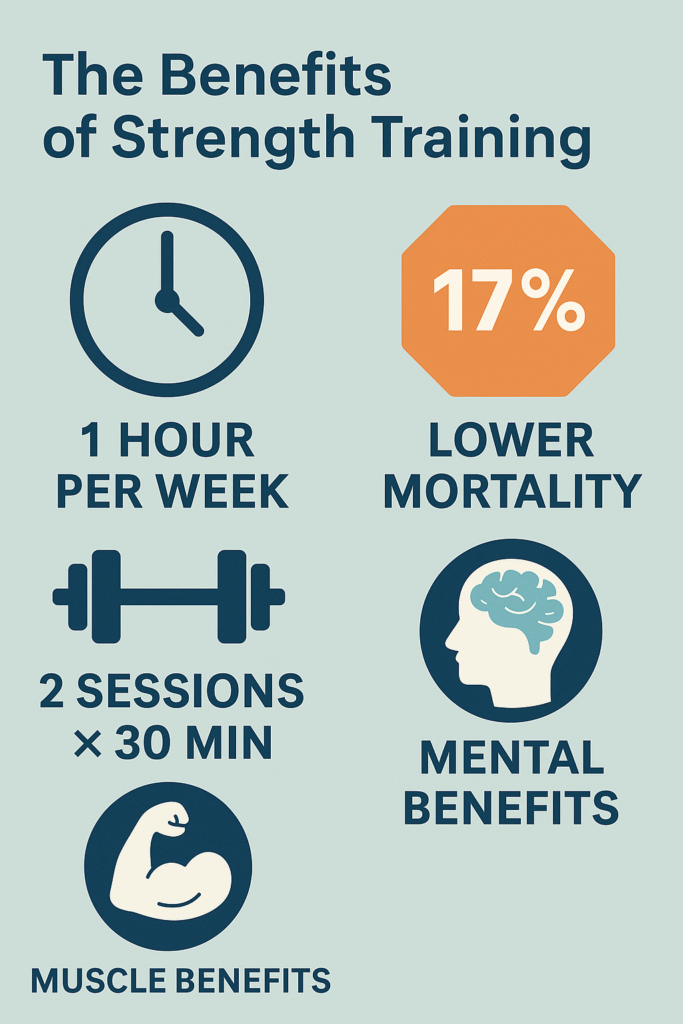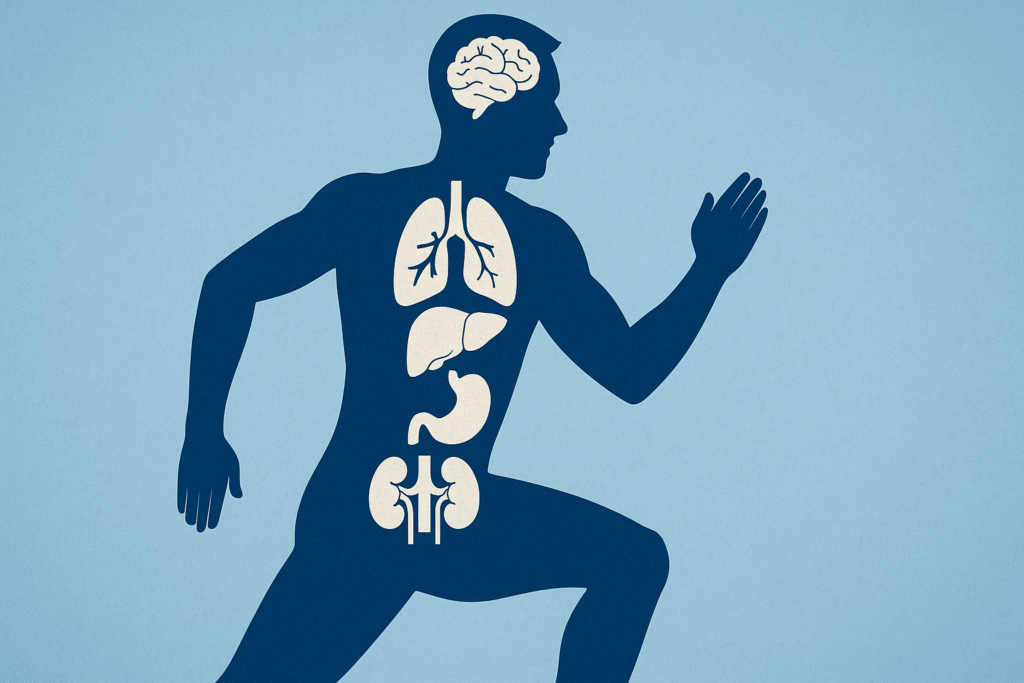How Strength Training Easily Adds Years to Your Life
New research shows a powerful connection between strength training and longevity. If you're short on time, here’s the good news: just one hour of resistance training per week may be enough to build muscle, enhance mental health, and extend your life. A recent peer-reviewed study published in Medicine & Science in Sports & Exercise is redefining what effective training looks like—and it’s a game changer.
Strength Training and Longevity: What the Science Says
A study led by Dr. Brad Schoenfeld followed 42 healthy adults aged 18 to 40, each performing two 30-minute strength training sessions weekly. These sessions included foundational movements like squats, presses, and rows—basic, accessible, and highly effective.
The results were striking: participants saw significant gains in muscle strength and size, regardless of whether they trained to failure or left reps in reserve.
"Consistency emerged as far more critical than training intensity. Remarkably, substantial strength and muscle gains occurred with minimal weekly training," said Dr. Schoenfeld.
Source: Medicine & Science in Sports & Exercise, Schoenfeld et al.

Muscle: A Metabolic Powerhouse
The study aligns with mounting evidence that strength training supports not just fitness, but long-term survival. A 2022 meta-analysis in the British Journal of Sports Medicine found that individuals who engage in muscle-strengthening activities 1–2 times per week reduce their risk of early death by up to 17%.
"Muscle acts as our metabolic currency. It regulates glucose, enhances insulin sensitivity, and protects against chronic illnesses—truly a critical indicator of healthy aging," said Dr. Gabrielle Lyon.
Source: British Journal of Sports Medicine

Mental Health Gains Through Strength
It’s not just your body that benefits. Resistance training has been shown to significantly reduce symptoms of depression and anxiety. A study published in JAMA Psychiatry found measurable improvements in mental health outcomes from just two sessions per week.
This is due in part to the impact of strength training on brain chemistry, including boosts in brain-derived neurotrophic factor (BDNF), which supports memory and cognitive function.
"Strength training doesn’t just build muscle; it rebuilds the brain. It’s foundational for emotional resilience and cognitive longevity," says Dr. John Ratey, author of Spark.

How to Start: 1 Hour a Week
You don’t need a gym or expensive gear. With simple tools like dumbbells, resistance bands, or even just bodyweight, you can achieve the same benefits from home.
Example Weekly Workout Plan:
| Day | Exercises | Sets x Reps |
|---|---|---|
| Monday | Dumbbell Squats, Push-ups, Bent Rows | 3 x 10–12 |
| Thursday | Kettlebell Deadlifts, Shoulder Press, Plank | 3 x 12–15 |
Focus on consistency. Progress will come.

Conclusion
This isn’t about doing more, it’s about doing what matters. Strength training and longevity are now deeply linked by science. With just one hour a week, you can protect your body, sharpen your mind, and invest in a healthier, longer life.
Sources
- Washington Post – New Study on Minimal Weight Training
- 🧾 Article reference for Schoenfeld’s study (April 2025)
- 🔗 https://www.washingtonpost.com/wellness/2025/04/29/minimum-weight-training-per-week/
- British Journal of Sports Medicine – Muscle Strengthening and Mortality Risk
- 🧾 Meta-analysis showing 10–17% reduction in all-cause mortality from strength training
- 🔗 https://bjsm.bmj.com/content/56/13/755
- JAMA Psychiatry – Resistance Training and Mental Health
- 🧾 Study showing reduced symptoms of depression and anxiety with strength training
- 🔗 https://jamanetwork.com/journals/jamapsychiatry/fullarticle/2680311
J.D. Wilson is an Integrative Health Specialist, Certified Meditation Teacher, and author of The Comfort Trap: The Quiet Cost of an Unchallenged Life. He founded Fitsnip.com to translate complex research into practical systems for longevity and mental clarity.
About: https://fitsnip.com/about




